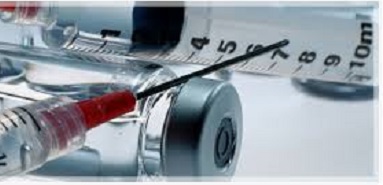As men age, their levels of testosterone can decrease, resulting in lower muscle mass, lack of energy, and other physical symptoms that may go beyond the expected symptoms of aging. While all men will go through some loss of testosterone, other men may be diagnosed with a medical condition known as hypogonadism, a syndrome that up until now has gone undiagnosed.
According to medical reports, hypogonadism is associated with Klinefelter syndrome, a medical condition that occurs in 1 in 500-600 boys. For those who suffer from the condition, hormone replacement therapies can bring testosterone up to normal levels.

With an increased awareness of congenital hypogonadism, researchers and doctor are exploring potential treatment options. Testosterone therapy has been a common form of treatment for hypogonadism, but it has also been overprescribed and often used by men who do not suffer from hypogonadism. This may a significant risk of cardiovascular issues, including heart attack. Our medical malpractice attorneys in Boston are experienced in investigating complex products liability cases and in pursuing financial compensation for victims. We understand the risks of testosterone therapy and are dedicated to raising awareness and helping prevent future injuries associated with dangerous drugs.
Testosterone therapy advertising campaigns have been aggressively pushing men into treatment, creating unnecessary concern surrounding “Low T.” There has been an increasing number of men consulting with their doctors and seeking prescriptions to treat low testosterone. In many of these cases, the men claim to have nonspecific symptoms, including sexual difficulties, fatigue, or depression, but have a normal “T” count for their age. Doctors have often responded to these inquiries by taking blood tests to measure testosterone or simply issuing a prescription.
Now a health campaign known as “Choosing Wisely” is advising clinicians to be more wary when exploring treatment options for patients. The ABIM Foundation is urging physicians away from unnecessary tests and treatments and to focus on alternative options. The bottom line is that doctors should not be prescribing testosterone therapy unless there is a biochemical deficiency of the hormone. With the aggressive advertising, it is not surprising that more men are seeking diagnostic tests and testosterone therapy–but all patients and doctors should be fully aware of the risks.
To test men for levels of testosterone, a blood-draw can be done in the morning and results will be returned within a day or two. For patients who do have low levels of testosterone, but feel okay, treatment is usually not necessary. Some men may suffer signs of low testosterone, including depression, low energy, or low libido, but this may have nothing to do with testosterone levels.
In the event that you are diagnosed with hypogonadism, you should still have a full understanding of the risks associated with testosterone therapy. Testosterone therapy can be given by shots, patches, gels, pellets or buccal film. Shots are the cheapest way to administer testosterone therapy. The long-term risks of any therapy are still unknown and all of the treatments will increase the risk of heart attack, blood clots, strokes and potentially prostate problems. Any patient with “Low T” should consider the risks of therapy and potential alternative treatment options, including naturally increasing testosterone levels.
Call the Boston Jeffrey Glassman Injury Lawyers for a free and confidential appointment — (617) 777-7777.
More Blog Entries:
Jury Awards $6 Billion in Punitive Damage Against Takeda, April 18, 2014, Boston Product Liability Lawyer Blog
Acetaminophen Dangers Highlighted in Recent Reports, Feb. 5, 2014, Boston Product Liability Lawyer Blog
 Product Liability Lawyer Blog
Product Liability Lawyer Blog

